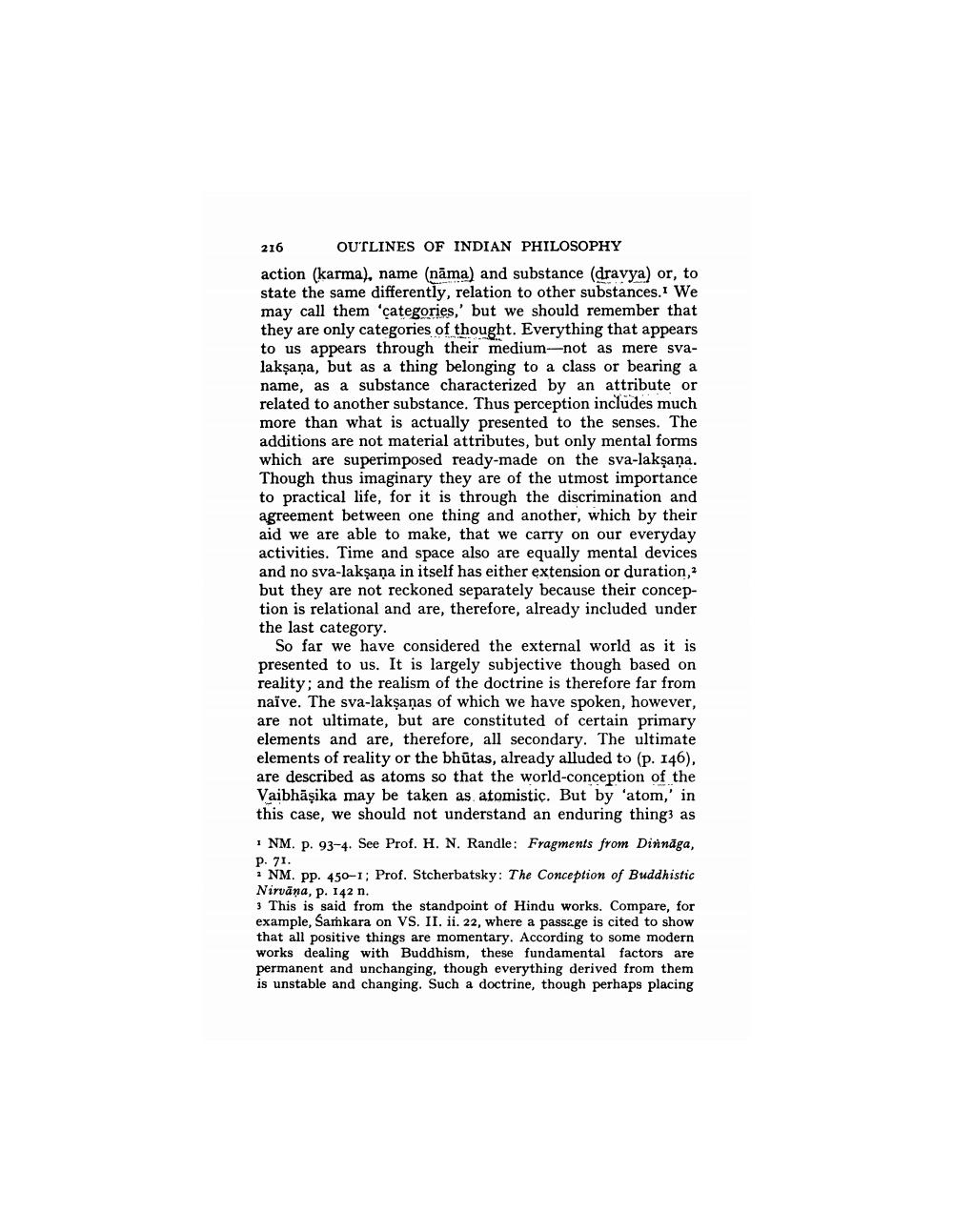________________
216 OUTLINES OF INDIAN PHILOSOPHY action (karma), name (nāma) and substance (dravya) or, to state the same differently, relation to other substances. We may call them 'categories,' but we should remember that they are only categories of thought. Everything that appears to us appears through their medium-not as mere svalaksana, but as a thing belonging to a class or bearing a name, as a substance characterized by an attribute or related to another substance. Thus perception includes much more than what is actually presented to the senses. The additions are not material attributes, but only mental forms which are superimposed ready-made on the sva-laksaņa. Though thus imaginary they are of the utmost importance to practical life, for it is through the discrimination and agreement between one thing and another, which by their aid we are able to make, that we carry on our everyday activities. Time and space also are equally mental devices and no sva-lakşaņa in itself has either extension or duration, but they are not reckoned separately because their conception is relational and are, therefore, already included under the last category.
So far we have considered the external world as it is presented to us. It is largely subjective though based on reality, and the realism of the doctrine is therefore far from naive. The sva-laksaņas of which we have spoken, however, are not ultimate, but are constituted of certain primary elements and are, therefore, all secondary. The ultimate elements of reality or the bhūtas, already alluded to (p. 146), are described as atoms so that the world-conception of the Vaibhāşika may be taken as atomistic. But by 'atom,' in this case, we should not understand an enduring things as
NM. p. 93-4. See Prof. H. N. Randle: Fragments from Dinnaga, P. 71. * NM. Pp. 450-1; Prof. Stcherbatsky: The Conception of Buddhistic Nirvana, p. 142 n. 3 This is said from the standpoint of Hindu works. Compare, for example, Samkara on Vs. II. ii. 22, where a passage is cited to show that all positive things are momentary. According to some modern works dealing with Buddhism, these fundamental factors are permanent and unchanging, though everything derived from them is unstable and changing. Such a doctrine, though perhaps placing




